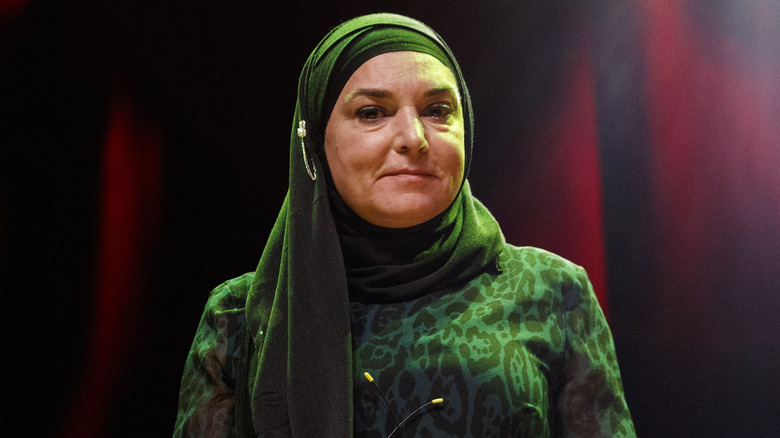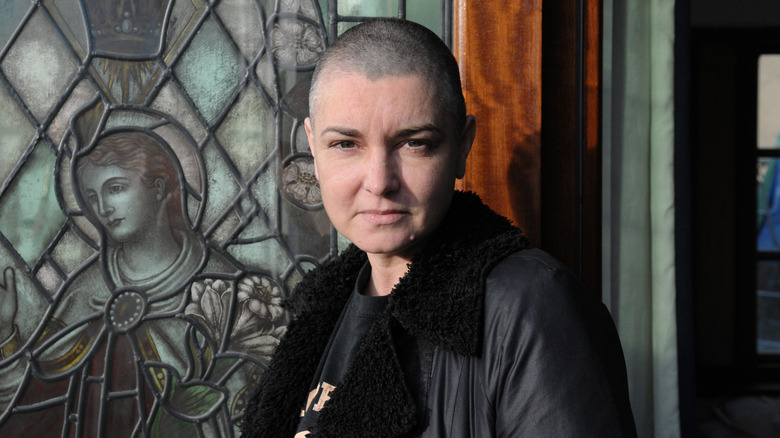Sinead O'Connor's Cause Of Death Has Finally Been Confirmed
The following article includes mentions of suicidal ideation.
Sinead O'Connor's cause of death has been released nearly six months after her death. The legendary Irish musician — best known for her hits "Nothing Compares 2 U" and "The Emperor's New Clothes," along with her dedication to social justice — died on July 23, 2023, according to People. At the time, O'Connor's family penned a joint statement announcing her death. "It is with great sadness that we announce the passing of our beloved Sinéad," read the statement. "Her family and friends are devastated and have requested privacy."
According to a London coroner, it's now known that O'Connor passed away from natural causes, reports CNN. "This is to confirm that Ms. O'Connor died of natural causes," the Southwark Coroners Court said in a statement to HuffPost. "The coroner has therefore ceased their involvement in her death. No further comments will be made." Unfortunately, as HuffPost noted, O'Connor died a year after she buried her teenage son, Shane O'Connor. O'Connor's last days have since been defined by her heartbreaking social media posts about missing Shane. Although O'Connor dealt with suicidal ideation — and once tweeted about her desire to end her life because of Shane's death, according to People — the coroner's report has cleared up any speculation about her cause of death.
If you or someone you know is struggling or in crisis, help is available. Call or text 988 or chat 988lifeline.org.
Sinead O'Connor had a history of health issues
Sinead O'Connor suffered from a variety of health issues throughout her life.
O'Connor went on record numerous times to discuss her journey with mental health issues, including bipolar disorder, according to Today. O'Connor also encountered various physical challenges as well. In 2015, O'Connor had a hysterectomy that drove her to a suicide attempt. During an interview with Dr. Phil, O'Connor said, "What kicked all of this off really was, I had a radical hysterectomy in Ireland two years ago and I lost my mind after that" (via USA Today). O'Connor revealed that she wasn't offered hormone replacement and was only given Tylenol to manage pain. "I was flung into surgical menopause," she continued. "Hormones were everywhere. I became very suicidal."
One year later, O'Connor faced a difficult recovery after undergoing surgery to treat a condition of the liver. "Still feeling so miserable from surgery. I don't recommend it Lost awful lot of blood as liver got cut accidentally so am weak as f***," O'Connor posted to Facebook (via People). The only bright side appeared to be her response to her eventual hormone replacement therapy, which she was able to obtain from U.S. doctors. "I do recommend hormone replacement. Am different person," she wrote. "Thank you to doctor here in America. And thank you to my surgeon."


